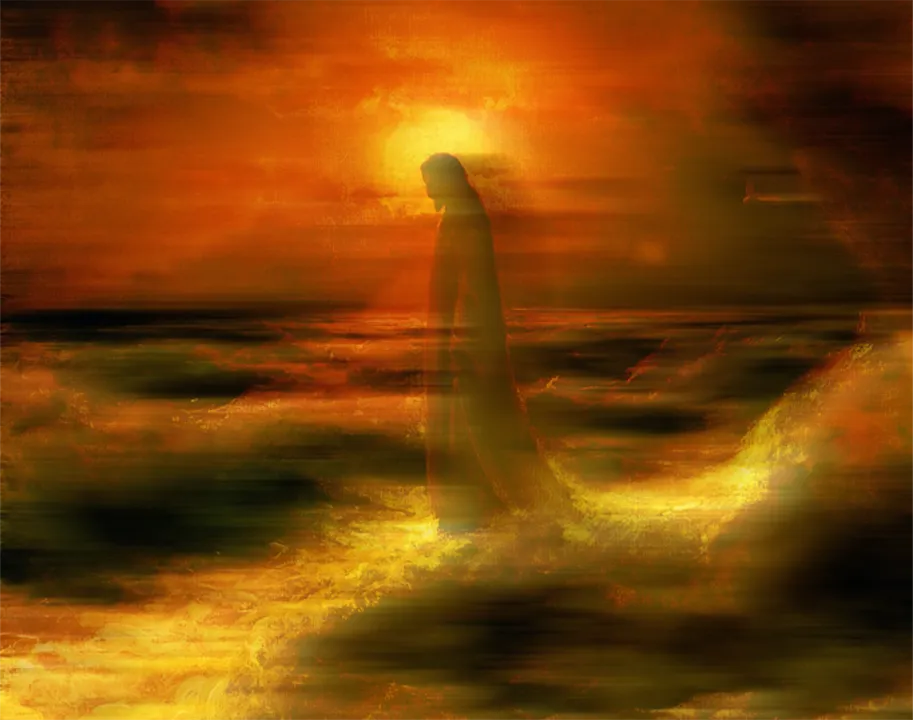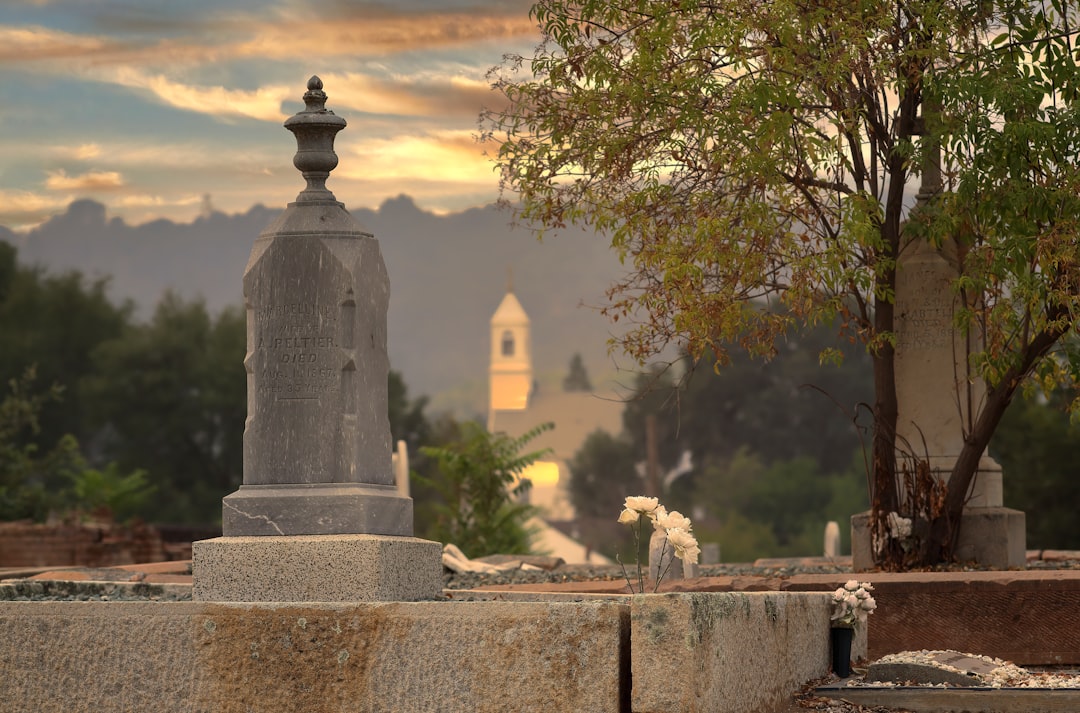Death is one of the most complex and philosophical concepts to ponder on. The debate rages even further when “God” is brought to the discussion. This article delves deeper into the various viewpoints surrounding the question – “Did God Die?” Read on to discover more!
Theological perspectives on death

When it comes to the topic of death, Christianity has reams of theological perspectives to ponder over. The death of God, in particular, is a topic that has puzzled theologians and philosophers alike for centuries. Some believe that God is eternal and therefore, cannot die. However, others argue that Christianity tells a story of how God, in the form of Jesus Christ, did indeed die in order to save humanity.
The debate around the death of God has been philosophical as well. Philosopher Friedrich Nietzsche famously proclaimed that “God is dead”, arguing that modern society had lost its belief in the divine and therefore, the very foundation of Western morality had crumbled. This has led to much theological debate about the nature of God and how belief in a divine being shapes one’s view of the world.

Yet, the topic of death also has a significant impact on spirituality. In fact, the very idea of death is integral to the Christian faith, as it is intertwined with ideas of salvation, resurrection, and eternal life. Judeo-Christian views on death hold that death is not the end of life, but rather a journey into the afterlife, where the soul is reunited with God.
However, questioning the nature of death can also play an important role in faith and belief. Many believers struggle with the concept of death and the idea of eternal life, leading to crises of faith. Nevertheless, it can also be through questioning and seeking answers that one’s faith is strengthened.
Finally, it is important to recognize that the human response to mortality and transcendence is incredibly complex. Christianity provides one answer to the question of what happens after death, but it is not the only answer. Atheism, agnosticism, and other religions all offer different perspectives, highlighting the diverse ways in which humanity engages with this challenging topic.
In summary, the theological perspectives on death are numerous and varied, but all share the common element of grappling with the mysteries of mortality and the divine. As a Christian, it is important to continue exploring these ideas and recognizing the different perspectives that contribute to this ongoing debate.
- Death of God
- Philosophy of Religion
- Afterlife
- Resurrection
- Divine
- Faith Crisis
The philosophical debate around the death of God
Many philosophers have engaged in the debate around the death of God. The concept of God’s death is not a literal one, but rather a philosophical one that questions the existence of a divine being. Some argue that as humanity advances, we may no longer need the concept of God to explain the universe’s mysteries.
Friedrich Nietzsche is perhaps the most well-known philosopher to tackle this topic. In his book “The Gay Science,” he famously declared, “God is dead. God remains dead. And we have killed him.” Nietzsche was not celebrating the death of God but recognizing that the idea of God had lost its meaning in modern society.
Other philosophers, such as Martin Heidegger and Jean-Paul Sartre, have also explored the implications of a godless universe. They argue that if God does not exist, then there is no inherent purpose to our existence. We must create our own meaning in life, which can be a daunting task for many.
But not all philosophers agree with the idea of God’s death. Some, such as Alvin Plantinga, argue that this concept is impossible since God, by definition, is a necessary being. Plantinga’s argument is that God’s existence is not something that can be proven or disproven through philosophical arguments.
Regardless of one’s philosophical views on the death of God, the concept has had a significant impact on culture and spirituality. It has led to the rise of atheism and agnosticism and challenged traditional religious beliefs. For some, it has caused a crisis of faith, while for others, it has strengthened their belief in a divine being.

In Christianity, the death of God is a central theme in the story of Jesus Christ’s crucifixion. His death is seen as a sacrifice for humanity’s sins, and his resurrection offers the promise of eternal life. Christians believe that through belief in Jesus Christ, they can achieve salvation and transcendence.
In conclusion, the debate around the death of God is an ongoing philosophical discussion that challenges traditional religious beliefs. It has significant implications for spiritual and philosophical beliefs about the nature of existence, mortality, and transcendence. Whether or not one believes in the existence of a divine being, the concept of God’s death has had a profound impact on human history and culture.
The impact of death on spirituality
As humans, we are all going to face death one day. It’s a topic that can be haunting, but it’s also an opportunity to consider our spirituality and beliefs. In this section, we’ll explore the impact of death on spirituality and ways that people can cope with the inevitability of death.
- Theological perspectives on death
Religious beliefs have a lot to say about death. The idea of an afterlife, reincarnation, or resurrection can bring comfort to people who are struggling with loss. Different religious traditions view death in various ways. For example, some religions view death as a natural process and a transition to a new life. In contrast, some religions view death as a punishment for sin or a result of human imperfection. The theological perspectives on death can shape how people understand and cope with mortality.
- The philosophical debate around the death of God
The death of God is a philosophical and theological concept that suggests that the idea of God is no longer relevant in modern society. This idea has been debated for centuries, and it has had a significant impact on the way that people view spirituality and religion. The debate around the death of God is complex, and it involves discussions about morality, meaning, and the purpose of life.
- Judeo-Christian views on death and resurrection
In Judeo-Christian traditions, death is viewed as a natural part of life. Many Christians believe in the resurrection of the body and the soul, which is a central tenet of the faith. This belief brings comfort to many Christians who are facing death. In contrast, some Christians view death as a punishment for sin and a separation from God. The Judeo-Christian views on death and resurrection can inform how people approach spirituality and how they understand the purpose of life.
- The role of questioning in faith and belief
« Unveiling the Mystery of Chloe in the Bible: Insights and Significance.
The Biblical Concept of Kinsman Redeemer: Understanding Family Redemption »
Questioning is a natural part of faith and belief. It’s essential to ask questions, explore doubts, and seek answers when it comes to spirituality. However, some people can experience a faith crisis when faced with the reality of death. It can be challenging to reconcile the idea of an all-loving God with the reality of pain, suffering, and death. The role of questioning in faith and belief is crucial, and it can help people to find meaning and purpose in the face of mortality.
- The human response to mortality and transcendence
Death is a part of life, and it’s something that every human being will face at some point. The human response to mortality can vary widely. Some people may experience fear, anxiety, or depression when faced with the reality of death. Others may find solace in spirituality or seek to transcend the limitations of mortality. The human response to mortality and transcendence is complex and deeply personal.
In conclusion, the impact of death on spirituality raises fundamental questions about mortality, existence, and the purpose of life. By exploring theological perspectives, philosophical debates, and Judeo-Christian beliefs, we can gain insight into how people cope with death and what it means to be human. A willingness to question our beliefs and seek answers can help us to find meaning and purpose in the face of mortality.
Judeo-Christian views on death and resurrection
As a youth pastor, you may have had moments when you faced questions from the community about difficult theological concepts such as the death of God. One particular aspect of this is the Judeo-Christian belief about death and resurrection.

In the Judeo-Christian tradition, death is seen as a natural part of life. It is something that inevitably happens to all living beings. Christianity teaches that death is a consequence of sin, and that it entered into the world through the disobedience of Adam and Eve as described in Genesis.
However, the Christian view of death differs significantly from that of other beliefs. While some faiths see death as the end of existence or a transition into a new life or existence, Christians believe that death is not the end. Rather, it is a time of judgment, both for believers and non-believers.
From the Christian perspective, the resurrection of Jesus is a central event in human history. It serves as a reminder that death is not the end and there is hope for eternal life. Christians hold the belief that through faith in Jesus, their sins are forgiven and they will be resurrected to eternal life. This belief in the resurrection is a cornerstone of Christianity, as it allows the faithful to face death with hope and courage.
The teachings of Jesus on the subject of death are reflected in the Gospel of John, where he says, “I am the resurrection and the life. He who believes in me will live, even though he dies; and whoever lives and believes in me will never die.” (John 11:25-26)
The concept of resurrection is also linked to the idea of transcendence. Christians believe that there is more to life than just the physical world. They see death as a gateway to a greater spiritual reality that transcends human understanding. This is why Christians often celebrate death as a new beginning rather than a tragic end.

In summary, the Judeo-Christian tradition teaches that death is a natural part of life, but it is not the end. Christians believe in the resurrection of Jesus and, through faith in him, they too can have hope for eternal life. This belief in transcendence and eternal life helps Christians face death with courage and hope.
The role of questioning in faith and belief
As a Christian, questioning your faith can be a scary and confusing experience. It’s natural to have doubts and wonder about the validity of your beliefs. However, it’s important to remember that questioning is a normal part of the journey towards a deeper understanding of God and your spirituality.
Here are some ways questioning can actually strengthen your faith:
-
It can lead to a deeper understanding of God. By asking questions and seeking answers, you are actively engaging with your faith instead of blindly accepting it. This can lead to a greater appreciation for the complexity and beauty of God’s nature.
-
It can help you make sense of difficult concepts. Christianity is full of complex ideas and theological debates. By questioning these concepts, you can gain a deeper understanding of their meaning and relevance in your life.
-
It can lead to a stronger relationship with God. When you take the time to question and reflect on your beliefs, you are showing a genuine desire to deepen your connection with God. This can result in a more meaningful and fulfilling spiritual life.
-
It can help you develop a more nuanced and empathetic understanding of others. By questioning your own faith and beliefs, you are also opening yourself up to the perspectives of others. This can help you become more empathetic and understanding towards those who may hold different beliefs than you.
Of course, questioning your faith can also be a difficult and uncomfortable experience. It’s important to seek guidance and support from trusted spiritual mentors or communities during this time. Remember that questioning is not a sign of weakness, but rather a sign of a curious and open mind.

If you’re struggling with doubt or questions about your faith, don’t be afraid to seek out resources and support. There are countless books, podcasts, and online communities dedicated to helping Christians navigate these challenges. Ultimately, it’s through questioning and seeking that we can deepen our understanding of God and our place in the world.
The human response to mortality and transcendence
As humans, we are all aware of our own mortality and the inevitability of death. It’s a complex and emotional topic that has been the subject of much thought and discussion throughout history, particularly in regards to our spiritual beliefs.
Some people may find comfort in the idea of an afterlife or eternal life, while others find the thought of death to be terrifying and final. These responses are often shaped by our individual beliefs, culture, and personal experiences.
Many religions and spiritual beliefs offer some form of hope or belief in an afterlife. In the Judeo-Christian tradition, death is seen as a temporary separation from loved ones, with the hope of eventual resurrection and eternal life. In other widespread beliefs, such as reincarnation, death is seen more as a continuation of the cycle of life rather than something to be feared.
That being said, there are many who struggle with the concept of mortality, leading to feelings of doubt, questioning, and even crisis of faith. Questions like “what happens to us after we die?” or “why would a loving God allow suffering and death?” are understandable and natural as we grapple with our own mortality and the larger mysteries of life.

It’s important to remember that questioning and doubt are a natural part of faith and belief. It’s okay to grapple with these complex topics and come to your own conclusions. Many people find comfort in talking to others, whether it be a religious leader, therapist, or simply a close friend or family member.
At the end of the day, our response to mortality and transcendence is a deeply personal and individual experience. It’s okay to feel a range of emotions, from fear and uncertainty to hope and peace. Through exploring our own beliefs and talking to others, we can come to a greater understanding of our own mortality and what comes next.












